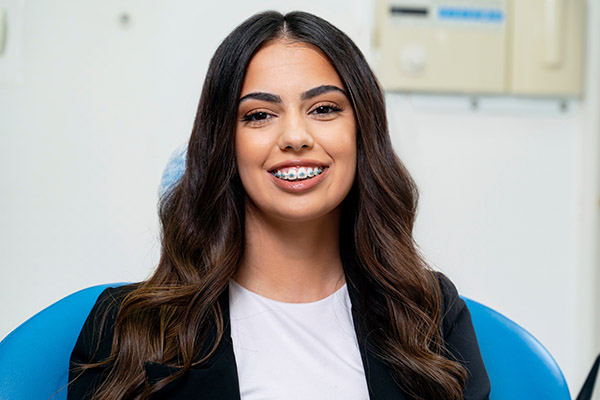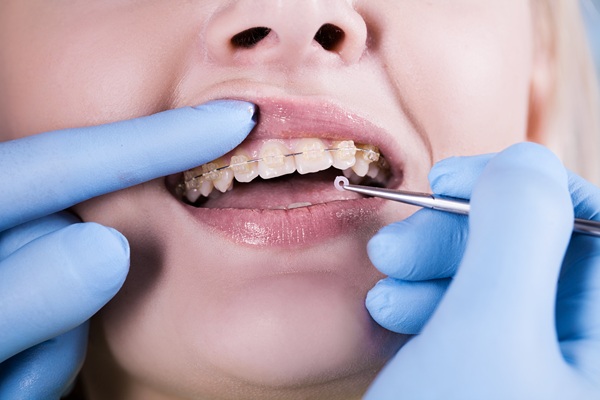 Choosing braces to correct your teeth can be an exciting and life-changing decision, but the process itself does not always go as planned. While discomfort and pain are not typical experiences with orthodontic treatment, there are many reasons you might feel uncomfortable throughout your journey towards straighter teeth – from being fitted to after you have had them on for a while.
Choosing braces to correct your teeth can be an exciting and life-changing decision, but the process itself does not always go as planned. While discomfort and pain are not typical experiences with orthodontic treatment, there are many reasons you might feel uncomfortable throughout your journey towards straighter teeth – from being fitted to after you have had them on for a while.
Considerations about braces
Although metal options have some advantages over materials such as those used in clear braces, there are issues to consider. Some patients experience extra discomfort when wearing metal braces than ones made with plastic, porcelain, or other materials. They may cause more gum irritation than their clear counterparts do. However, many patients report this is only the case for a few weeks following treatment.
Though discoloration of the brackets is not a concern with metal braces, they may be harder to keep clean than their clear counterparts. It can be easier for plaque or food particles to get stuck on your teeth if you are wearing metal brackets. If a patient does not thoroughly brush their teeth several times a day, bacteria can build up and cause mouth sores, bad breath, or even tooth decay.
Adjusting to braces
Depending on your situation, you may experience discomfort. While some discomfort is normal as you adjust, serious pain should be evaluated by an orthodontic specialist immediately. All types of braces may cause some discomfort at times. However, you have more options for treating it. Orthodontic specialists can reduce or eliminate discomfort through a variety of methods.
Over time, patients will feel more comfortable in their braces. However, patients are frequently surprised by how fast they adjust. After a while, you may not even realize that you have them on at all. Your teeth will be straightened, giving you a beautiful smile for years to come.
Maintaining your straightened teeth
A retainer is used to ensure that your teeth stay in their new location, especially after you are finished. It also protects them from becoming crooked again as time goes on. Your orthodontist will show you how to clean your retainers when you get them to make sure they last a long time and continue doing their job effectively.
If you are not maintaining your retainers, they may become loose. This can cause problems for a few reasons. If one falls out, it can get dirty or lost. It may even start to smell bad from bacteria or decay if it is not replaced quickly. You could also damage your teeth if you chew on something hard and sharp, like a carrot stick or a pencil.
Learn more about braces from your orthodontist
If you are considering braces, talk to your orthodontist about what is best for your specific case. Remember that there are options available if traditional metal braces are not ideal for you or a family member who needs them corrected. An orthodontist can show you what is available and why one option might be better than another.
Request an appointment or call Michael Emanuel DDS PLLC at 718-635-4822 for an appointment in our Brooklyn office.
Related Posts
Curious about orthodontic treatment? Read on to learn more. Straight teeth and properly aligned jaws make for a healthy and functional smile. Many people are lucky to have naturally straight teeth, but others require orthodontic intervention to correct overcrowding, gaps, or misalignment. In some cases, orthodontic therapy can extend far beyond repositioning the teeth in…
Discovering you need orthodontic care does not have to be a worrisome situation. The orthodontist will help you the whole way, and the staff will guide you on any concerns, ranging from financing to maintenance. If you have booked an appointment with an orthodontist, this piece provides a guide on what to expect and questions…
Maintaining the position of the teeth after orthodontic treatment requires the use of dental retainers. Read on to learn about the different types of retainers available. As soon as the braces or aligners come off, your teeth will begin repositioning themselves to where they were before treatment. To avoid relapse, you should use retainers. They…


